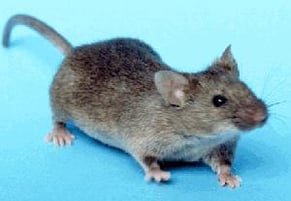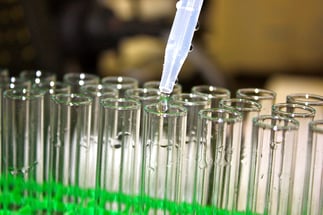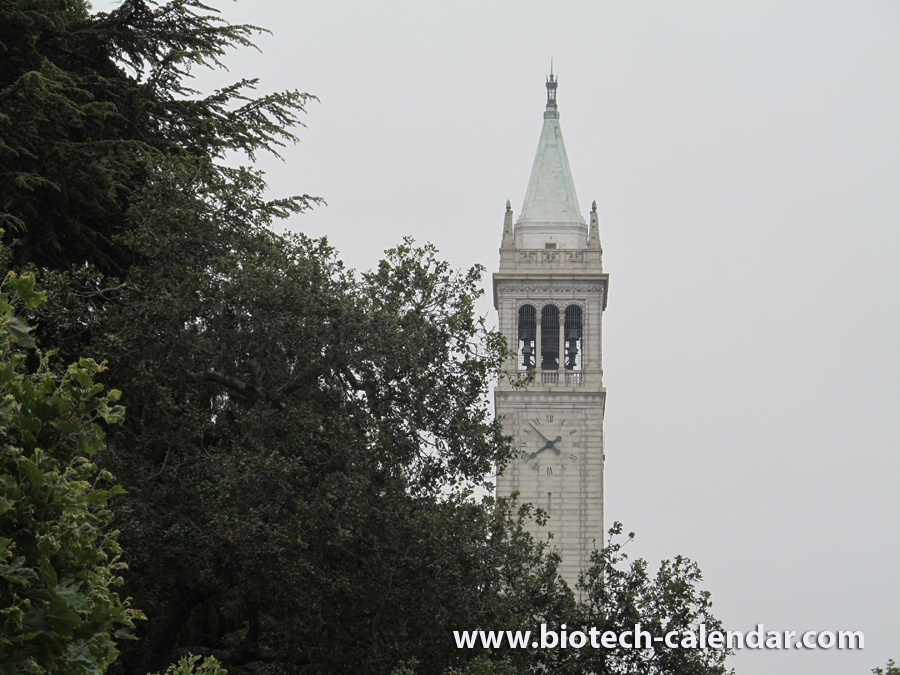UC Berkeley neuroscientists are creating technology that can fool the brain into thinking it has felt, seen or sensed something that it has not. The goal is to read neural activity and learn which sets of neurons to activate in order to simulate the pattern of an actual brain response. This technique might someday be used to replace lost sensations after peripheral nerve damage or control a prosthetic limb.
Read MoreTags: University of California Berkeley, University of California, BioResearch Product Faire Event, Research Funding, NIH funding, UCBerk, 2018, Neurological Research

Researchers from the University of California, Berkeley are one of many groups benefiting from funding from the BRAIN Initiative, founded by President Obama in 2013. The Berkeley research team, in partnership with a team from the Allen Institute for Brain Science in Seattle, have received $65.5 million from the National Institutes of Health (NIH) to catalog all the cells of a mouse brain with the goal of using this catalog to later classify all cells in the human brain. (Image courtesy of Wikimedia Commons)
Read MoreTags: University of California Berkeley, University of California, BioResearch Product Faire Event, NIH funding, UCBerk, 2018, BRAIN Initiative

The University of California, Berkeley is a leading research institution, producing promising research in all divsions of the life sciences. To help further research in immunotherapy and cancer, researchers from the University of California, Berkeley have recently teamed up with the Berkeley-based biotech company, Aduro Biotech Inc., for a $7.5 million immunotherapy initiative. This Immunotherapeutics and Vaccine Research Initiative (IVRI) will provide three years of funding to infectious disease researchers studying new techniques for combating both infections and cancer.
Read MoreTags: CA, University of California Berkeley, immunotherapy, cancer research, vaccine research, Southwest, researchers, UC Berkeley, new funding, UCBerk, 2016, BioResearch Product Faire, Aduro Biotech
 Each year in the United States, more than 2 million people develop antibiotic-resistant infections and at least 23,000 people die as a result, according to the U.S. Centers for Disease Control and Prevention.
Each year in the United States, more than 2 million people develop antibiotic-resistant infections and at least 23,000 people die as a result, according to the U.S. Centers for Disease Control and Prevention.
Tags: CA, infectious diseases, California, 2015, Berkeley, BioResearch Product Faire Event, NIH funding, UC Berkeley, UCBerk, NIH grants, best lab supply tradeshows, best science tradeshows
 Researchers at University of California, Berkeley have been doing a lot of bird watching lately to help understand the spread of infectious disease. In a recent study they found that Lyme disease, which many believe is spread by rodents and small mammals, is in fact regularly transmitted by several species of birds as well.
Researchers at University of California, Berkeley have been doing a lot of bird watching lately to help understand the spread of infectious disease. In a recent study they found that Lyme disease, which many believe is spread by rodents and small mammals, is in fact regularly transmitted by several species of birds as well.
Read More
Tags: CA, Bioresearch, Lyme Disease, Southwest, California, 2015, Berkeley, disease research, BioResearch Product Faire Event, UC Berkeley, UCBerk
The Environmental Protection Agency limits the amount of arsenic in U.S. public drinking water to 10 parts per billion (ppb). Water that comes from privately owned wells may contain higher levels of arsenic, especially in areas where the groundwater flows over arsenic-rich bedrock. In a recent study done by UC Berkeley, arsenic was found to potentially show benefits as a cancer fighting agent.
Tags: CA, water, cancer research, Southwest, 2015, Berkeley, BioResearch Product Faire Event, UC Berkeley, UCBerk
Emmanuelle Charpentier, Ph.D., and Jennifer A. Doudna, Ph.D., have been awarded the 2015 Breakthrough Prize in Life Sciences for their work in developing the CRISPR/Cas9 genome editing tool. Dr. Charpentier is the head of the Regulation in Infection Biology department at the Helmholtz-Zentrum für Infektionsforschung (Helmholtz Centre for Infection Research) in Braunschweig, Germany, and also a co-founder and advisor to Swiss drug developer CRISPR Therapeutics.
Read MoreTags: CA, genome research, Southwest, genetic engineering, 2015, Berkeley, BioResearch Product Faire Event, UC Berkeley, UCBerk
The $500,000 Keck Fund research award was given earlier this year to bioengineering professors Kumar and Murthy for their project, Single Tumor Cell Proteomics for Diagnosis and Prognosis.
Tags: 2014, University of California Berkeley, proteomics, cancer research, BioResearch Product Faire Event, UC Berkeley, UCBerk
UC Berkeley is one of the top institutions in the world based on quality of the research produced. UC Berkeley researchers need to keep up with the latest advances in tools and technology to stay at the top of their fields. To help UC Berkeley reseachers keep up with technology, Biotechnology Calendar, Inc. invites laboratory supply companies to demonstrate their new and innovative research equipment, kits, and reagents at the upcoming 17th ANNUAL Berkeley BioResearch Product Faire Event ON JUNE 4, 2014.
Researchers are seeking new equipment at the:


Berkeley's prestige is tied in with the quality of its faculty:
Among its current faculty:
- 8 Faculty members are Nobel laureates
- 141 Faculty are National Academy of Sciences members
- 94 Faculty are National Academy of Engineering members
- 13 Faculty have received the National Medal of Science
- 230 Faculty are American Academy of Arts and Sciences fellows
Research Funding:
Each year, the Berkeley campus receives well over half a billion dollars in research support from external sources. In the fiscal year ending June 30, 2013, UC Berkeley attracted $705.1 million in new research funding. This represents a 38 percent increase over the past decade. Many of these research awards fund multi-year projects and support expenditures that will be reflected in subsequent years.
The federal government provided 47 percent of these sponsored research funds, and California state agencies, industry, and the non-profit sector supplied the rest. Of the research funding provided by the U.S. government, the largest contributors are the Department of Health and Human Services and the National Science Foundation, with each contributing approximately one third of the federal funding.
10 Funding Facts about UCBerkeley:
- NSF 2012 Ranking: 62nd (total R&D expenditures in life sciences) =$208,788,000
- NIH 2012 Ranking: 56th (Direct plus indirect costs but excluding R & D contracts and ARRA awards) = $118,610,088
- UC Berkley has completed construction on the Alternative Energy building, where research can now begin. The $133 million biofuels research building houses labs for the study of molecular and microbial biology, fermentation and chemical separation, greenhouses, and dry and cold rooms.
- UC Berkley has been reimbursed $30 million for the Berkley Lab research facility construction, which began in the summer of 2012. The building is due to open in 2014, funds had been held due to economic pressures, but have now been released and the project is on its way. Scientist’s will be researching and developing an artificial photosynthesis process.
- The National Health Institute has awarded UC Berkeley $12.8 million for research into cancer, neuro-degenerative diseases and radioactive decontamination as well as other medical health conditions.
- University of California, Berkeley has received a five year $10 million grant from the National Science Foundation to develop powerful new tools to help extract key information from the large quantity of loose data in the world.
- The Bryolab at UC Berkley is to receive part of a $5.1 million grant for its work in biocoding a complete ecosystem.
- The National Science Foundation has awarded UC Berkeley more Graduate Research Fellowships than any other university.
- The Department of Molecular and Cell Biology at UC Berkeley received $1 million to support research into Lupus.
- In 2007 global energy firm, BP, awarded $500 million over 10 years to the University of California, Berkeley, in partnership with the Lawrence Berkeley National Laboratory (LBNL) and the University of Illinois at Urbana-Champaign. The funding created the Energy Biosciences Institute (EBI) to develop new sources of energy and reduce the impact of energy consumption on the environment.
Tags: 2014, CA, Southwest, Berkeley, BioResearch Product Faire Event, UC Berkeley, UCBerk
Researchers at UC Berkeley recently developed a novel imaging technique that allowed them to observe cellular processes in Cyanobacteria, one of the most common forms of bacteria. This research was a collaborative project involving researchers from UC Berkeley and the Department of Energy Joint Genome Institute (DOE JGI).
Tags: 2014, University of California Berkeley, Southwest, California, Cell Imaging, Berkeley, BioResearch Product Faire Event, UC Berkeley, UCBerk



